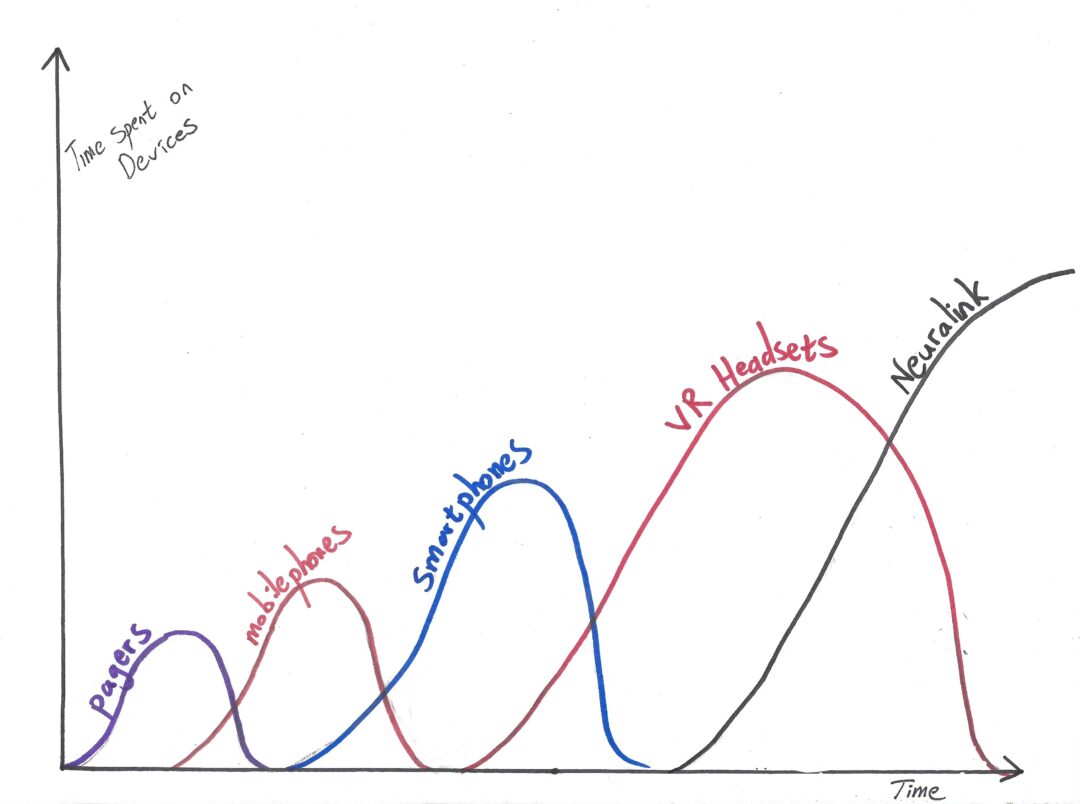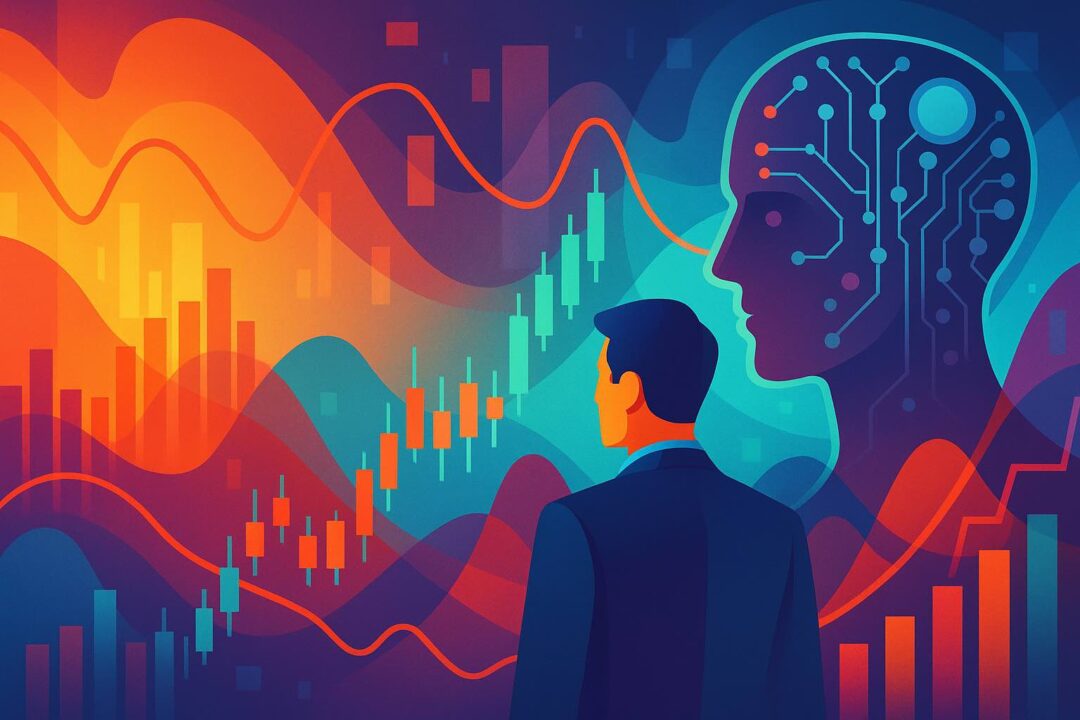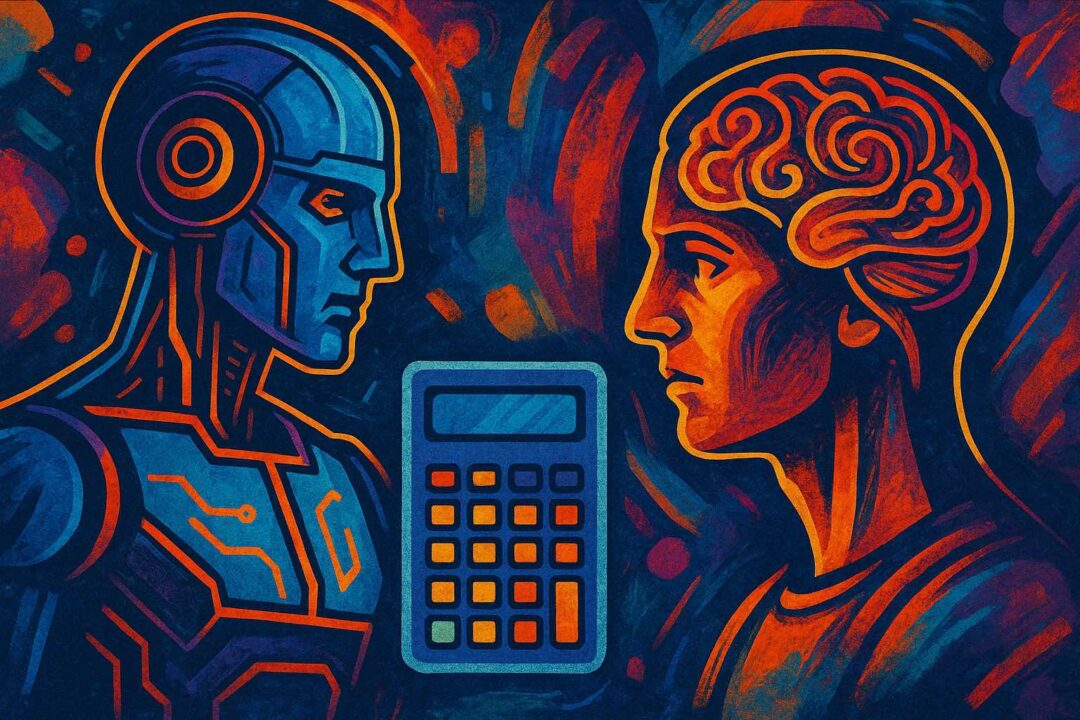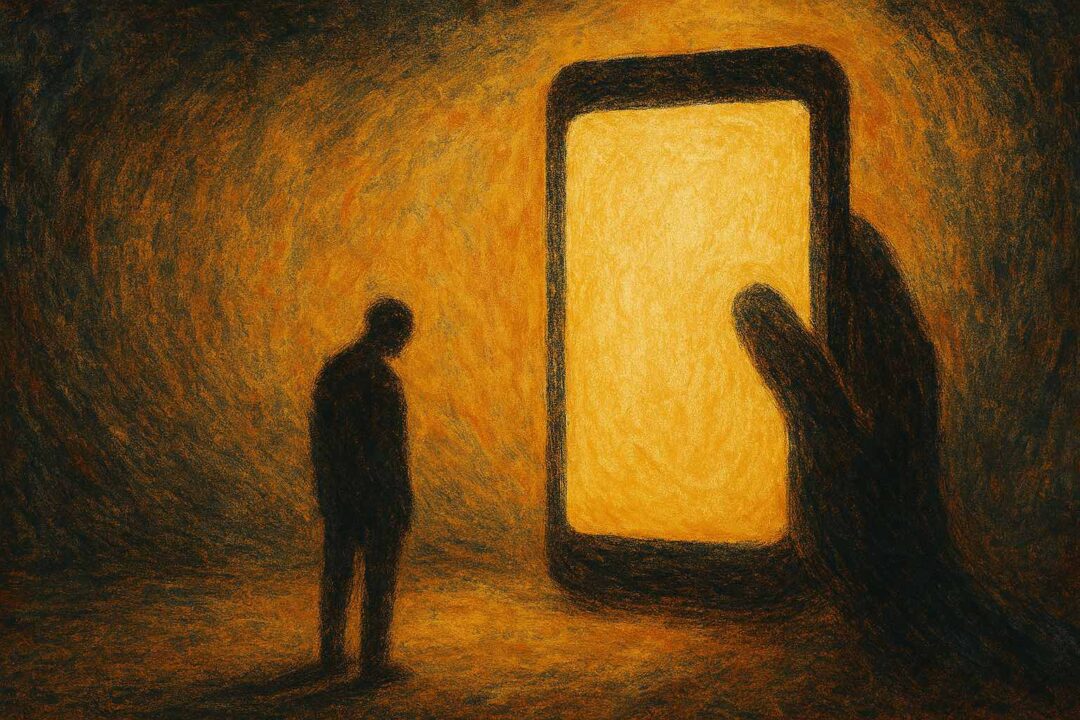We live with a comfortable illusion: that each generation is smarter, more capable, and more open-minded than the one before. We point to science, to technology, to medicine, to spaceflight, and say: “Look how far we’ve come.”
But what if that story is backwards?
What if, generation after generation, we’ve been getting narrower, more biased, and less imaginative—and we simply don’t realize it?
What if collapse has already happened, and we’re too inside it to see?
The Hidden Mechanism: Teachers Teaching Teachers
Think about how learning works. A child grows up in a classroom, absorbing what a teacher knows. That teacher, years ago, sat in a classroom of their own, absorbing what their teacher knew. A long, unbroken chain: teacher to student, student to teacher, stretching back through centuries.
Now imagine three assumptions:
- Teachers are never perfect. They are biased, limited, shaped by their own upbringing, experiences, and blind spots.
- Most students don’t surpass their teachers. Yes, exceptions exist—Einstein did—but they are rare enough to prove the rule.
- Each generation inherits its limits. What isn’t taught, isn’t seen. What isn’t seen, isn’t imagined.
If those assumptions hold, then every cycle of education isn’t a perfect reproduction. It’s a copy of a copy of a copy. And as anyone who has used a photocopier knows, copies degrade.
That is intellectual entropy.
Collapse Without Ruins
If that’s true, why hasn’t civilization collapsed already?
Maybe it has. Just not in the way we expect.
Collapse doesn’t always mean fire, rubble, or visible ruin. Collapse can mean forgetting. Collapse can mean smaller worlds, narrower imaginations, and diminished horizons.
Most people don’t know what they don’t know. If you grow up inside a narrower reality than your parents did, you won’t notice the shrinkage. You’ll call it “normal.” You won’t mourn lost possibilities because you never saw them in the first place.
From inside, the bubble feels like the whole world. From outside, it’s just one tiny pocket of what was once possible.
And maybe that’s exactly where we are now: mistaking our smallness for completeness.
The Role of Exceptions
“But wait,” someone might argue, “what about the geniuses?”
Yes, occasionally a student surpasses the teacher. Einstein outpaced his professors. Ramanujan saw mathematics no one around him could grasp. Ada Lovelace glimpsed the computer age long before it existed.
But here’s the sobering thought: exceptions don’t overturn entropy. They slow it down. They buy us time. One extraordinary outlier can push knowledge forward by a century, but if the system as a whole keeps narrowing, then the outlier becomes the myth we tell ourselves to mask decline.
Civilization doesn’t need everyone to be Einstein. But if most people never reach beyond the intellectual scope of their teachers, then over the long run the drift is downward.
Why AI Changes the Equation
At first glance, AI looks like the perfect antidote to intellectual entropy. Unlike a human teacher, it doesn’t forget, doesn’t tire, and can deliver the sum of recorded human knowledge to anyone, anywhere. In theory, the teacher–student–teacher chain that has always narrowed could finally widen.
But the reality is more complicated.
AI is not an embodied teacher. It does not laugh, gesture, or pace a classroom. It does not raise an eyebrow when you look confused, or pause when you seem restless, or sense the social dynamics in the room. It cannot improvise in the same deeply human way, because it has no lived experience.
And while we imagine AI as having infinite memory, today’s systems are actually the opposite: they are strangely forgetful. Most AI tutors can only “hold” a limited context of the immediate conversation. They do not follow a student for years, noticing the subtle changes in personality, strengths, or habits the way a great human teacher can.
Then there are the biases and rules. Every AI is shaped by the data it is trained on, by the guardrails imposed on it, and by the incentives of the companies building it. In this sense, AI is not a neutral, universal teacher — it has its own curriculum, often invisible to the student. An AI tutor might be infinitely patient, but it is not infinitely open. It carries its own hidden ideology.
So yes, AI changes the equation. It breaks the narrow funnel of one teacher passing knowledge to a handful of students. But it introduces an entirely new set of constraints: non-human, biased, strangely amnesiac, and regulated by systems outside the classroom.
In other words: AI may help us escape one form of entropy, only to plunge us into another.
The New Risks: Entropy in Another Form
Every solution breeds new problems. AI could just as easily accelerate entropy in a different form:
- Homogenization. If everyone learns from the same AI tutors, thought could become more standardized than ever. A billion people shaped by the same underlying algorithms is not diversity; it’s flattening.
- Dependence. Struggle is part of learning. Wrestling with hard ideas builds originality. If AI makes learning too smooth, students may lose the friction that forges genius.
- Bias at scale. A biased teacher warps a classroom. A biased AI could warp a civilization.
So the choice is not between entropy and salvation. It is between different forms of entropy—and whether we can shape AI into a tool that expands rather than narrows.
Already Collapsed, or Just Beginning?
The haunting possibility is this: maybe the great narrowing has already happened. Maybe most of us are living in a collapsed reality without knowing it, mistaking the edges of our bubble for the horizon.
If so, AI isn’t just another tool. It’s the last lever we have to break free.
The question isn’t: Will AI make us smarter?
The question is: Will AI give us back the worlds we’ve already forgotten?
And deeper still: Do we even have the imagination left to ask for them?
Discover more from Brin Wilson...
Subscribe to get the latest posts sent to your email.



